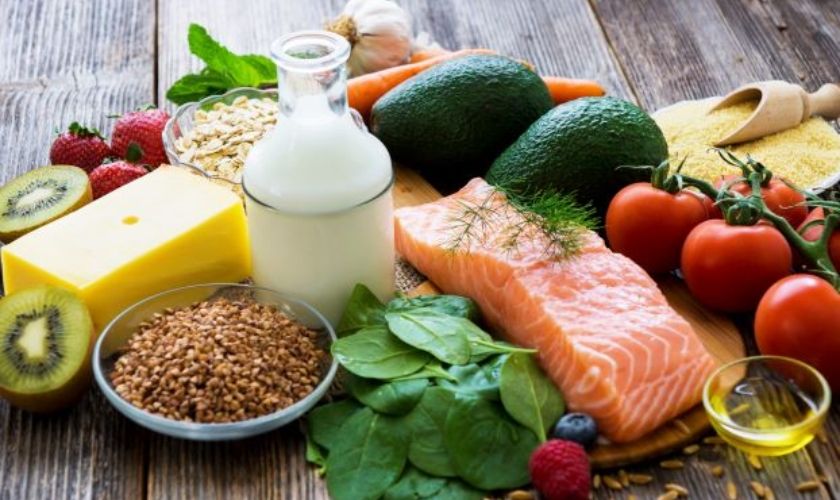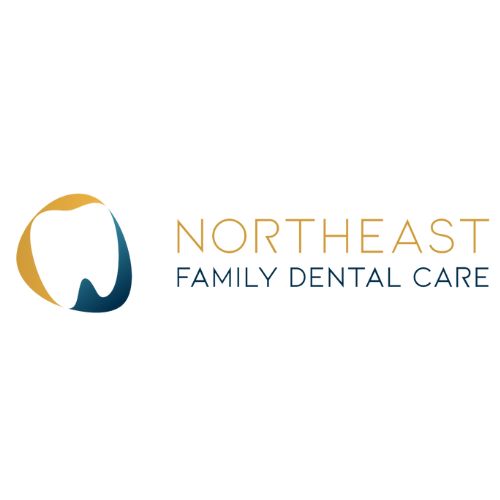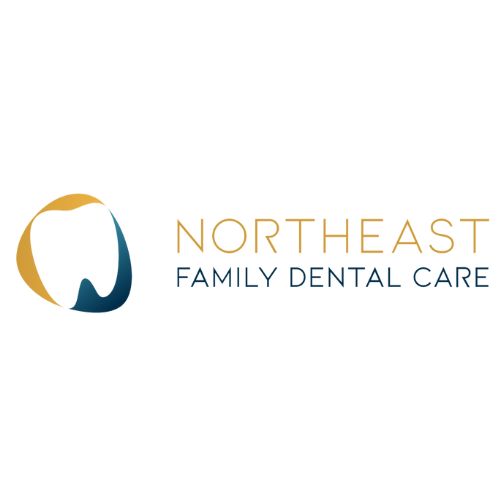What to Eat After Dental Implant Surgery

Are you considering dental implant surgery? Congratulations! This procedure can restore your smile and improve your overall oral health. However, it's important to remember that proper nutrition plays a crucial role in the healing process after dental implant surgery. So, what should you eat during this time? Don't worry – we've got you covered! In this blog post, we'll give you all the tips and recommendations for a nutritious and delicious post-implant diet. Whether you're in Hugo or Elgin, our expert advice will help ensure a successful recovery while satisfying your taste buds. So sit back, relax, and get ready to nourish your body for optimal healing!
Understanding Dental Implant Surgery and Recovery
Dental implant surgery is a procedure that involves replacing missing teeth with artificial tooth roots. The implants are typically made of titanium, which is biocompatible and fuses well with the jawbone. This creates a strong foundation for the replacement teeth.
After undergoing dental implant surgery, it's important to give your body time to heal. The recovery process can vary from person to person but generally takes several months. During this time, the implants need to integrate with the surrounding bone before they can support permanent crowns or dentures.
It's normal to experience some discomfort and swelling after dental implant surgery. Your dentist may prescribe pain medication or recommend over-the-counter pain relievers to help manage any discomfort you may have.
To ensure successful healing, it's crucial to follow your dentist's instructions regarding oral hygiene and dietary restrictions during the recovery period. Proper nutrition plays a vital role in promoting healing and reducing the risk of complications.
During the initial stages of recovery, it's best to stick with soft foods that require minimal chewing. This helps prevent any stress on the surgical site while still providing essential nutrients for healing.
The Importance of Proper Nutrition After Surgery
Proper nutrition plays a crucial role in the healing process after dental implant surgery. Your body needs essential nutrients to repair tissues, reduce inflammation, and promote overall healing. By following a nutritious diet, you can ensure that your body has the fuel it needs to recover successfully.
After surgery, it's important to focus on consuming foods that are rich in vitamins, minerals, and protein. These nutrients are vital for tissue regeneration and building new bone around the implant site. Incorporating foods such as lean meats, fish, eggs, dairy products, fruits, vegetables, and whole grains into your meals can provide these essential nutrients.
In addition to nutrient-dense foods, staying hydrated is also key during recovery. Drinking plenty of water helps keep your mouth clean and moist while supporting the natural healing process.
Soft or pureed foods are often recommended during the initial stages of recovery when discomfort may be present. Foods like mashed potatoes or sweet potatoes; soups; yogurt; smoothies; scrambled eggs; and soft-cooked vegetables can help you maintain a balanced diet without putting excessive strain on your surgical sites.
Avoiding certain types of food is equally important for promoting proper healing after dental implant surgery. Foods that are hard or crunchy should be avoided as they can potentially disturb the surgical site or cause damage to surrounding tissues.
By paying attention to your dietary choices and focusing on nourishing your body with wholesome foods post-surgery will aid in faster healing times and minimize complications along the way. Remember to consult with your dentist about specific dietary recommendations tailored to meet your individual needs during the recovery period
Soft Foods to Eat During the Healing Process
After dental implant surgery, it's important to choose soft foods that are easy to chew and won't irritate the surgical site. These types of foods can help promote healing and ensure a smooth recovery process.
One option for soft foods is soups or broths. They provide warmth and hydration while being gentle on your mouth. Opt for pureed or blended soups without any large chunks of vegetables or meat.
Yogurt is another excellent choice as it is not only soft but also packed with nutrients like calcium and protein. Choose plain yogurt without added sugars or fruit chunks to avoid any discomfort.
Mashed potatoes are a comforting and easily digestible food that can be enjoyed during the healing process. To add some flavor and variety, you can try mixing in cooked vegetables like peas or carrots.
Smoothies are a great way to incorporate fruits and vegetables into your diet while still maintaining a soft food consistency. Blend together ingredients such as bananas, spinach, almond milk, and nut butter for a nutritious meal replacement option.
Don't forget about eggs! Scrambled eggs or omelets can be cooked until they are soft enough to eat without causing any pain or irritation.
Remember to consult with your dentist before making any dietary changes after dental implant surgery.
Foods to Avoid to Promote Healing
While it's important to focus on the foods that can aid in your healing process, it's equally crucial to know which foods you should avoid after dental implant surgery. Certain foods can hinder the healing process and potentially cause complications. Here are some key items to steer clear of:
1. Hard and Crunchy Foods: It’s best to avoid hard and crunchy foods such as popcorn, nuts, chips, and raw vegetables. These types of foods require excessive chewing and can put pressure on your implants, leading to discomfort or even damage.
2. Spicy Foods: Spicy dishes may irritate the surgical site and cause pain or inflammation. It's recommended to skip spicy sauces, hot peppers, or any other strongly flavored spices during the initial stages of recovery.
3. Sticky Foods: Stay away from sticky substances like caramel candies or chewy gum as they can easily get stuck around the implant area. This not only poses a risk for infection but also prolongs the healing process.
4. Carbonated Drinks: Fizzy beverages like soda contain high amounts of sugar and acids that aren't ideal for oral health while recovering from dental implant surgery. These drinks increase the risk of infection and slow down healing.
5. Alcohol: It is advisable to abstain from alcoholic beverages during your recovery period as alcohol can delay wound healing, interfere with medications prescribed by your dentist Elgin, and potentially lead to complications.
By avoiding these types of food items after dental implant surgery Elgin, you'll give yourself a better chance at a successful recovery without any unnecessary setbacks
Nutritious Meal Ideas for After-Dental Implant Surgery
Proper nutrition plays a crucial role in the healing process after dental implant surgery. It's important to consume foods that are soft, easy to chew, and packed with essential nutrients. Here are some nutritious meal ideas to consider during your recovery:
1. Soups and broths: Warm soups can provide nourishment without putting strain on your implants. Opt for vegetable or chicken broth-based soups, as they are easy to swallow and rich in vitamins.
2. Protein-packed smoothies: Blend together fruits like bananas or berries with protein powder and yogurt for a nutrient-dense meal replacement option. Smoothies can be customized based on your preferences while ensuring you get enough protein for proper healing.
3. Mashed potatoes or sweet potatoes: These starchy sides can be prepared in a soft consistency by mashing them thoroughly. Add some butter or gravy for flavor, but avoid any hard toppings like nuts.
4. Soft-cooked vegetables: Steam or cook vegetables until they reach a tender texture that is easy to chew and digest. Carrots, green beans, and broccoli are great options packed with vitamins.
5. Scrambled eggs: Eggs are an excellent source of protein and can be easily scrambled into a soft texture that is gentle on the surgical site.
Remember to choose foods that aren't too hot or too cold as extreme temperatures may cause discomfort during the healing process.
Tips for Maintaining Oral Hygiene During Recovery
Maintaining good oral hygiene is crucial during your recovery period after dental implant surgery. Taking proper care of your mouth can help prevent infection and promote faster healing. Here are some helpful tips for maintaining oral hygiene during this time:
1. Gently brush your teeth: Use a soft-bristle toothbrush to gently brush your teeth twice a day. Be careful not to apply too much pressure, as this can irritate the surgical site.
2. Rinse with saltwater: After brushing, rinse your mouth with a warm saltwater solution several times a day. This helps keep the surgical area clean and reduces inflammation.
3. Avoid using mouthwash: While it may be tempting to use mouthwash for that fresh feeling, it's best to avoid it during the initial healing phase as it may contain alcohol or other chemicals that could irritate the surgical site.
4. Stay hydrated: Drinking plenty of water helps keep your mouth moist and aids in flushing out any bacteria or food particles that may have accumulated around the implant site.
5. Follow a balanced diet: Eating nutritious foods rich in vitamins and minerals can support overall healing and strengthen your immune system.
Remember, always follow any specific instructions given by your dentist for post-operative care. By practicing good oral hygiene habits during recovery, you'll be well on your way to achieving successful results from your dental implant surgery!
As you embark on your dental implant surgery journey, it's important to remember that proper nutrition plays a vital role in the healing process. By choosing the right foods and maintaining good oral hygiene, you can support the successful integration of your dental implants and ensure a smooth recovery.
During the initial stages of recovery, focus on consuming soft foods that are gentle on your newly implanted teeth and gums. Opt for nutritious options such as mashed potatoes, soups, yogurt, scrambled eggs, and protein shakes. These foods provide essential nutrients while minimizing discomfort during chewing.
While it's tempting to indulge in your favorite crunchy or sticky treats, it's best to avoid them during this fragile period. Foods like popcorn, nuts, chips, caramel candies, and hard bread can potentially dislodge or damage your implants before they have fully healed.
To ensure optimal healing after dental implant surgery:
1. Stay hydrated: Drink plenty of water throughout the day to promote overall health.
2. Follow post-surgical instructions: Listen carefully to your dentist's advice regarding oral care routines.
3. Maintain oral hygiene: Brush gently using a soft-bristled toothbrush and rinse with an antimicrobial mouthwash.
4. Avoid smoking: Smoking can hinder the healing process by reducing blood flow to the surgical area.
5. Attend follow-up appointments: Regular check-ups with your dentist will allow them to monitor progress and address any concerns promptly.
Remember that every individual is unique when it comes to their healing process; therefore, it is always recommended to consult with your dentist about specific dietary recommendations based on personal needs.


